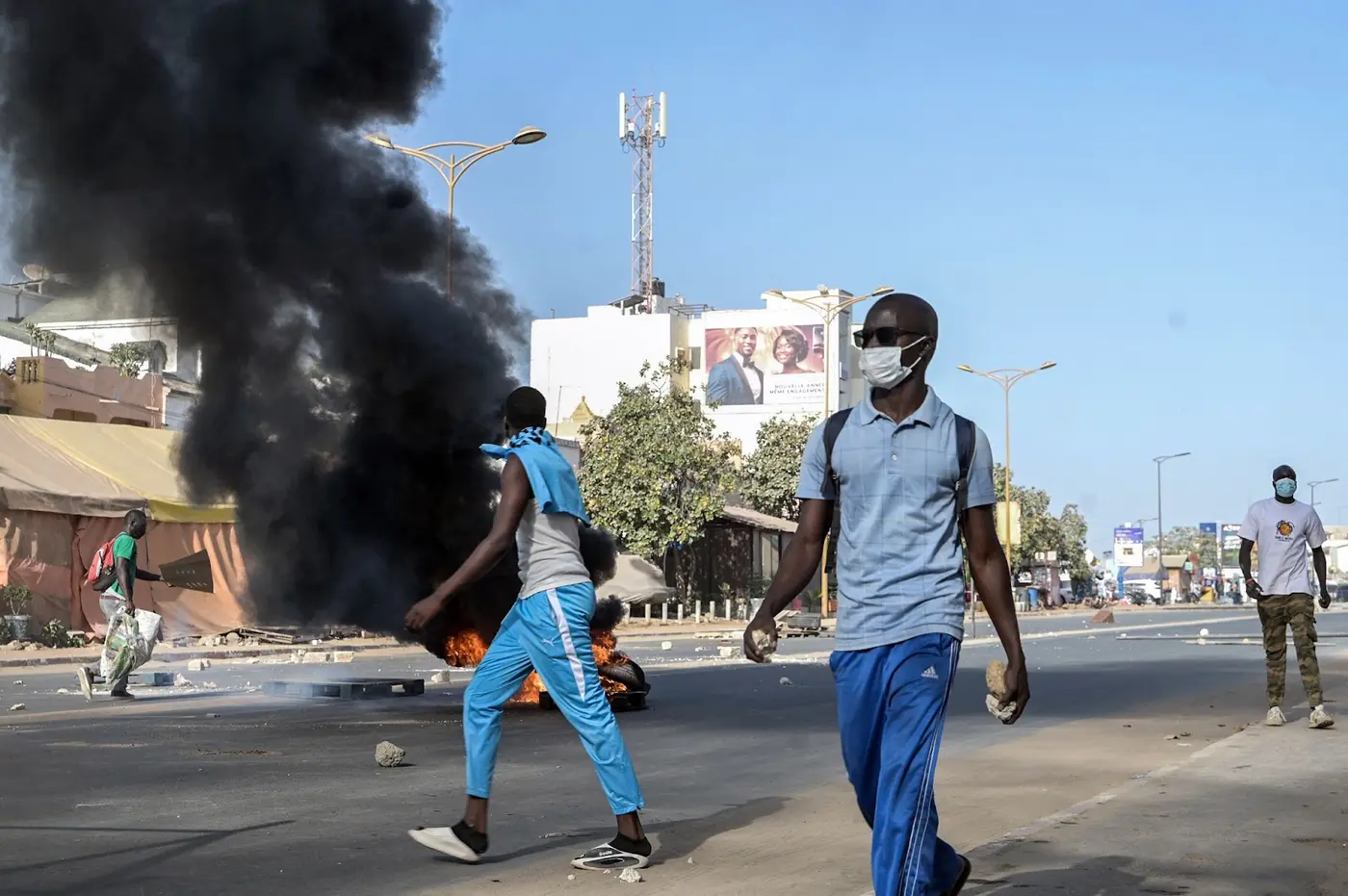The assembly of the Senegalese parliament is convened to deliberate on the postponement of the presidential election that President Macky Sall has declared, an action that has precipitated a crisis in the nation.
Following a day of violent street demonstrations in the capital, Dakar, where at least one senior opposition figure was detained, and increasing international concern, the session on Monday will take place.
Legislators are deliberating on a proposition to potentially extend by six months the presidential election that was originally scheduled for February 25. To be approved, the proposed text will require the agreement of three-fifths of the 165-seat parliament.
A formal legal petition was lodged by presidential candidate Malick Gakou in opposition to the postponement of the election, according to a document from the constitutional council.
Since Sall’s announcement of a delay on Saturday, a series of events have transpired in the West African nation.
The government shut down a private television station on Sunday, citing “incitement to violence” in relation to the station’s reporting of the protests; this incident further underscores the escalating political tensions in the nation. Monday also saw restrictions on the mobility of motorcycles in Dakar, despite the capital’s increased security.
In certain regions of the country, internet connectivity was also restricted by the government. The Ministry of Communication, Telecommunications and Digital Economy issued a statement attributing this action to the proliferation of hateful and subversive messages disseminated through social networks, which contained threats and disruptions to public order.
Security forces used tear gas to disperse an opposition rally outside the parliament building just prior to the start of the legislative debate.
Election Delay Sparks Political Crisis
The current situation, which opposition leaders characterise as a “constitutional coup” and an “attack on democracy,” has been labelled as such.
Sall explained that a dispute between the Constitutional Court and the National Assembly regarding the rejection of candidates caused him to postpone the voting.
“Without specifying a new date, I will initiate an open national dialogue to establish the conditions for a free, transparent, and inclusive election,” he continued.
The controversy that Sall attributed to the election delay resulted from the Constitutional Court’s ruling that disqualified Karim Wade, the son of former president Abdoulaye Wade, from vying for the presidency.
A decision he deemed “scandalous” was his alleged dual French citizenship, which prevented him from entering.
Members of the National Assembly who supported Wade demanded that a parliamentary investigation be conducted into the potential partiality of two Constitutional Court justices.
On January 30, some members of Sall’s party participated in the vote in favour of its passage.
Sall, who withdrew from a third term on account of controversy last year, had nominated Amadou Ba, the prime minister of his party, as his intended successor. However, due to the party’s division over his candidature, Ba was on the verge of electoral defeat.
The candidate excluded from the ballot by the Constitutional Court is not Wade alone.
Since July 2023, fiery anti-establishment figure Ousmane Sonko has been incarcerated and is similarly ineligible to run.
Bassirou Diomaye Faye, his surrogate, has been granted candidature and has emerged as a credible candidate – a nightmare scenario for the camp of the president.
The reactions
Concern has been expressed by the international community in response to Sall’s decision to postpone the vote.
Moussa Faki Mahamat, chairman of the African Union Commission, urged Senegal to “resolve its political dispute through dialogue, understanding, and consultation.”
On Monday, Faki urged the authorities to “conduct the elections expeditiously, with transparency, peace, and national harmony” in a message published on X, formerly known as Twitter.
In addition to the European Union, former colonial power France, the United States, and the European Union have all called for an immediate rescheduling of the referendum.
It is the first time since 1963 that a presidential election in Senegal, one of the few African nations without a rebellion, has been delayed.





